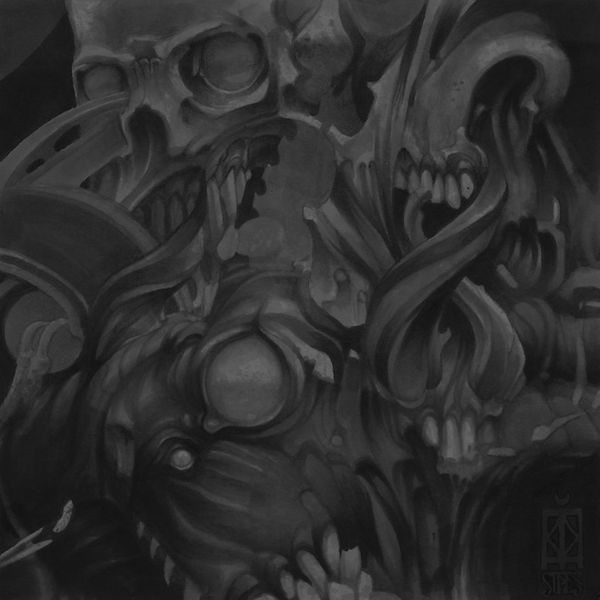Opeth–Heritage
 (Originally posted on the hellishly good Hellbound.ca)
(Originally posted on the hellishly good Hellbound.ca)
Heritage is the 10th album from Sweden’s Opeth. Discarding the nuanced melodic death metal that has secured their reputation thus far, their new album is comprised solely of mellifluous prog, folk and jazz. It is a controversial step (to say the least). The band’s transparent retro ’70s fixation, and the casting aside of the bulk of their metal characteristics, has left a fair proportion of their audience scratching their heads in bewilderment, wondering not only how to approach Heritage but also curious about the future direction of their much loved band.
*
Heritage* is a bold artistic statement. It is clearly a deeply personal release for Opeth’s chief songwriter,Mikael Akerfeldt, and as such it has evoked some passionate responses from fans. Whether you think the album is a failure or a triumph, it’s definitely succeeded on two crucial levels—it’s got people from outside the usual fan base interested, and it’s a great piece of divisive art.
It’s a courageous move to release an album so steeped in pure progressive rock, yet it’s hardly an unexpected one. All of Opeth’s albums have been indebted to proggy bands such as Nektar, Eloy, Camel, Rainbow and Uriah Heep as much as they have to Celtic Frost, Bathory, Iron Maiden or any other legendary metal outfit. And this is not Opeth’s first polarizing release.
The sedate musings of ’03′s Damnation ruffled a few feathers—although the blow was somewhat softened byDeliverance and Ghost Reveries bookending it. The fact is folks have been complaining about Opeth selling out since they plucked their first string, and while their decision to dump the growls and heavy riffs has met with a lot of consternation, it is perhaps the question of the band’s future direction that leaves fans feeling most nervous.
Akerfeldt has never been shy about admitting the influence that progressive, jazz, folk and psych rock have had on his musical endeavors—he’s probably spent longer talking about Comus than he has about any metal bands—and we’ve all been witness to the clear influence ’70s prog has had on Opeth’s sound. Over the course of their nine previous albums they’ve been transforming themselves into more of a hybrid, expansive outfit by constantly tweaking and experimenting with different arrangements. Admittedly, this has been a slow progression, but with epic songs that shift through various movements and moods it’s always been clear that Opeth have had ambitions that exceed the limitations of death metal’s envelope.
Ultimately, if Akerfeldt wants to channel his love of King Crimson, Weather Report, Jethro Tull and Deep Purple on the new album he’s earned the right to do so. After two decades of catering to the wishes of his fans, who are we to begrudge him a little self-indulgence? What matters most is this—is the new album any good?
The first single, “The Devil’s Orchard”, is one of the heaviest tracks on the album—although ‘heavy’ is a relative term here, obviously. It’s all billowing keyboards and sweeping, elegant riffs (with the delicious vocal hook of “God is dead”). It’s the perfect introduction to this ’70s prog workout. The only track that really matches its heaviness—at least for the first three minutes—is the Ronnie James Dio tribute, “Slither”, which manages to push some more (lite) traditional metal riffs to the fore.
Along with the obvious progressive thrust of the album there is also a strong hint of jazz; “Nepenthe” has a free-jazz looseness about it that eloquently mixes frantic and passive passages in an off-kilter fashion, and “Folklore” has its share of clever little fusion flourishes. The dulcet tones of folk have a strong presence as well; “Haxprocess” is set around some beautiful rolling acoustic strumming and melodic vocal lines, and the final track, “Marrow of the Earth”, is bucolic, countrified heaven.
While the album is unquestionably adventurous—and you have to applaud Opeth for that—it is not always successful. “The Lines in My Hand” is fairly forgettable; being far too reminiscent of the other tracks it sounds as if it were cobbled together from outtakes. The album does have a slight weakness; the obvious desire to cram in as much inventive prog as possible means that some contorting passages could have easily been trimmed, giving the album a bit more space round the edges.
However, a few glitches don’t make the album a failure, and when you encounter the standout track “Famine” you’ll be inclined to forgive Opeth anything. The track is an absolutely majestic eight-minute romp through varying textures and emotions, utilizing some incredible flute and keyboard jams, beautiful vocals and juxtaposing shifts in disposition. It’s spirited, rambunctious and is the strongest representation on the album of where Akerfeldt’s heart truly lies.
As it’s still unforeseen where Opeth are heading to next, Heritage stands out as an eccentric anomaly in their catalogue. But this doesn’t diminish the quality of the album one bit. Heritage is a fantastic album, although it’s not without its flaws. However, those flaws have nothing to do with Opeth’s decision to become preoccupied with prog. They are simply slight musical missteps, and who hasn’t stumbled when finding a new path? If this is a new beginning then you can rest assured that the next album will be fascinating. As it is,Heritage is still a significant release, and a real treat for prog-heads like myself. It’s well worth investigating. Brave move Mr. Akerfeldt.
(Opeth)




